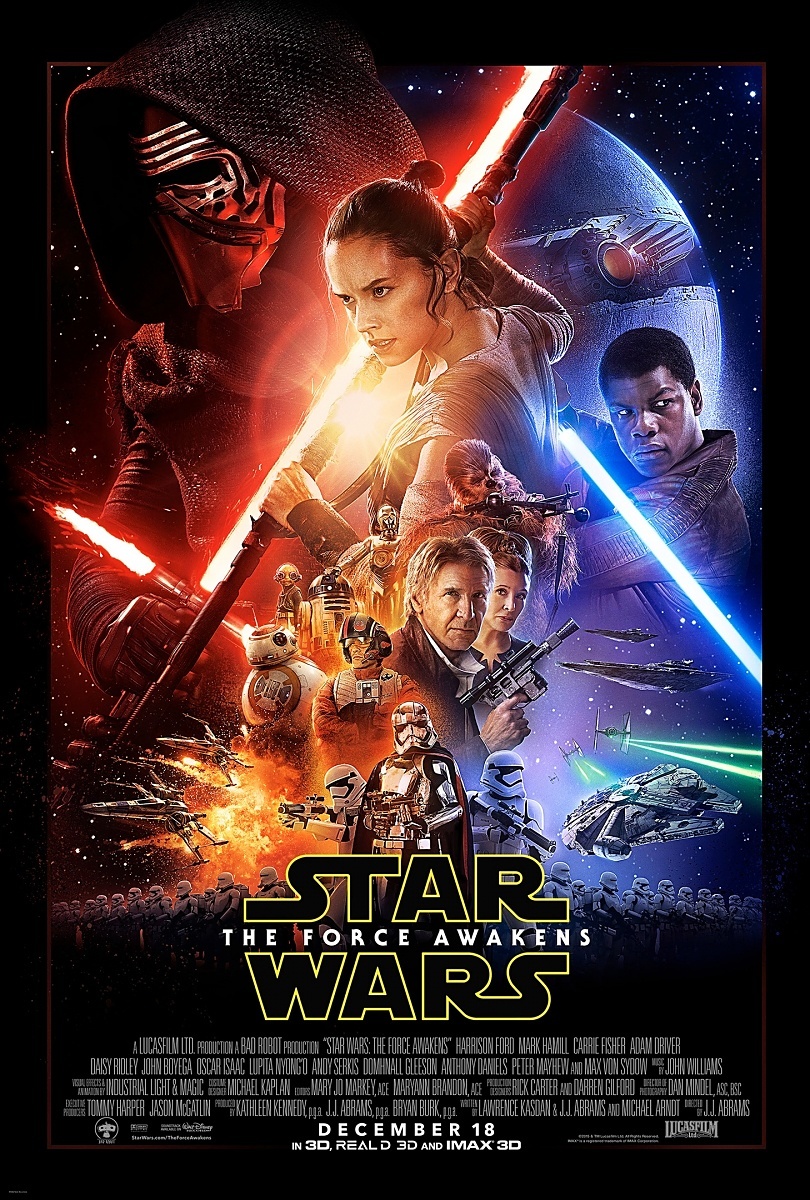January 20, 2016
Echoes of the original “Star Wars: The New Hope” abound in the new film “The Force Awakens.” For the most part, that’s a good thing. Continuity with previous characters and themes make watching this movie a bit like a homecoming event. Indeed, we need generational stories that remind us that the conflicts between good and evil, truth and lies are perennial, that actions have consequences far beyond our life spans and that older generations have much to offer the new.
From the start it is clear that our wonderfully appealing young adult protagonists Rey and Finn are in need of mentoring. Rey will become the film’s heart and center, a true heroine, but opening scenes reveal her reclusive as if a resigned to minimal existence. Finn, destined to become the new age Han Solo has fears that like his antecedent drive him to flee at the onset of any conflict. Like Han in his younger days, Finn is bound to “look out for number one,” until an encounter with Rey calls him to accept some adult responsibility in countering the evil forces of the First Order. When the elder Han Solo appears on the exiled Millennium Falcon (“Chewie, we’re back!”), the young adults begin to get some mentoring. Han helps them deliver clues to the Republic and Resistance Fighters that pertain to the missing Luke Skywalker’s whereabouts who alone may have a plan to defeat the First Order.
Good story. Fun film.
As for particulars, Rey is beautifully portrayed by Daisy Ridley. She will be a fine feminine hero for the new set of films. John Boyega as Finn is up for the challenge of a young man with evolving perceptions and maturity. Many reviewers have noted the special effects are first-rate and I particularly appreciated John Williams being back for the music soundtrack. Keep those leitmotifs coming!
All in all, “The Force Awakens” is a good film especially because it keeps the human element front and center amidst the technical wizardry of the galactic battles. To be a great film, however, I would have urged the screenwriters Lawrence Kasdan, J.J. Abrams and Michael Arndt (and Abrams the director) to shorten some of the war sequences and offer a few more scenes focusing on character development. Why is Kylo Ren (Adam Driver) so angry with his father Han Solo? What brought about the rupture in Han and Leia’s relationship? We might infer from the earlier films that Leia would be workaholic princess par excellence and Han unable to resist his wanderlust but with “the force” on their side, how did they fail to negotiate their inherent differences that was part of their initial, mutual attraction? And what really forced Luke Skywalker into exile?
The fact that the young people are adrift and their potential mentors are flawed but good intentioned makes for good drama. But when we only get surface insight to the paradigm, the climactic scene between Han and Kylo Ren falls short of the emotionally gripping mark it should have. Father-Son conflicts are abundant in the Bible and in Greek myths and folktales. But for the 21st century, let’s have more than the usual Oedipal dynamics.
I hope I haven’t given too much away, but I imagine at this juncture, everyone reading this has seen the film. Let us know your responses. We would love to hear from you.
